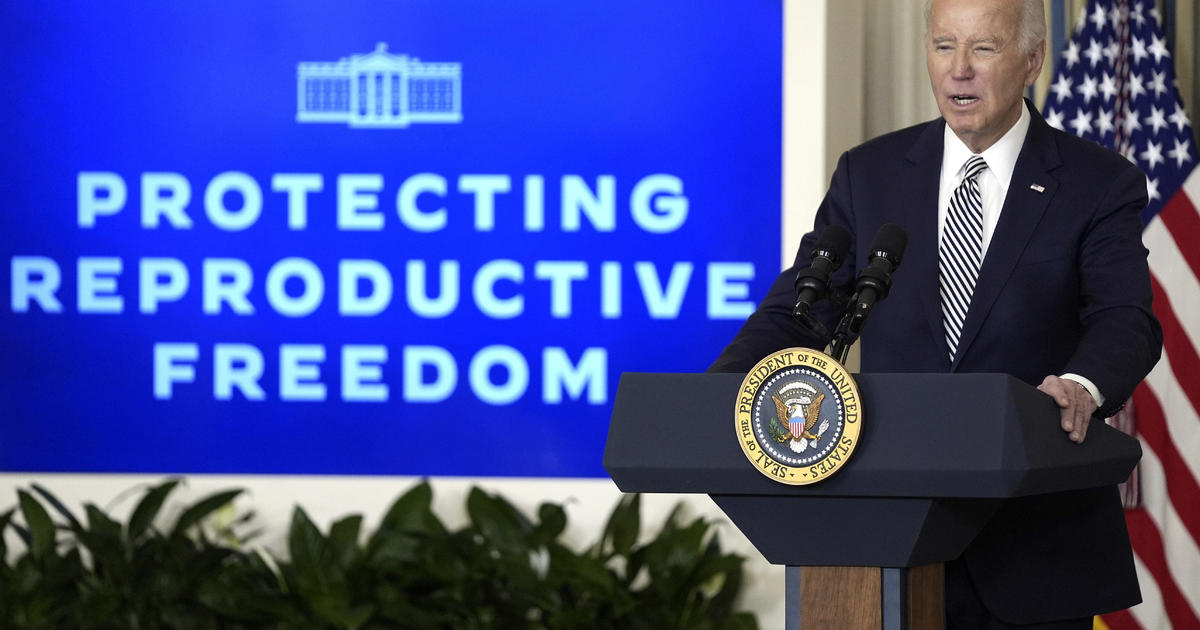House Takes Aim At Hospital Regulations
Follow CBSMIAMI.COM: Facebook | Twitter
TALLAHASSEE (CBSMiami/NSF) -- A House panel on Tuesday approved a proposal that would eliminate key regulations when it comes to building hospitals.
The bill (HB 31A), approved in a party-line vote, is part of a series of proposals that House Republican leaders have pushed to make changes in the health-care industry. The measure would eliminate what is known as the hospital "certificate of need" process, which requires state review and approval of building new hospitals, replacing hospitals and offering certain complex, costly medical services such as organ transplants.
House Health & Human Services Chairman Jason Brodeur, a Sanford Republican who is sponsoring the bill, argued that eliminating the regulations would spur more innovation in the hospital industry and competition for patients.
"This bill … removes a regulatory barrier that hinders competition and disincentives the innovation that we see happening in other industries,'' Brodeur said. "It creates a free market with more competition and, ultimately, more options for those seeking health care."
But critics said they are concerned, in part, that the bill would lead to new hospitals that would focus on attracting patients with health insurance, leaving behind uninsured patients at already-existing hospitals. Opponents included the Florida Hospital Association, the state's largest hospital-industry group.
"No one wants to compete with us for uncompensated patients,'' said Bill Bell, the hospital association's general counsel. "They only want to treat the paying patients, and that's why they would siphon off those paying patients, increase our costs, and we would have to shift those costs back to our paying patients and businesses."
With lawmakers in the middle of a special legislative session called to pass a budget, it remains unclear whether the House certificate-of-need proposal has any chance of passing. The Senate has not filed a similar bill for the special session, though the Senate Health Policy Committee is slated to discuss the issue Wednesday during a workshop.
Nevertheless, the debate during the special session could be a step toward House Republican leaders pushing to eliminate hospital certificates of need in the future. The House Health Innovation Subcommittee voted 9-3 to approve Brodeur's bill, with all of the panel's Republicans supporting it.
The certificate-of-need process has long been controversial and can lead to legal battles within the industry.
As an example, the state Agency for Health Care Administration late last year gave preliminary approval for a certificate of need for Plantation General Hospital to build a replacement 200-bed facility near the campus of Nova Southeastern University in Broward County. But Memorial Healthcare System and Cleveland Clinic Florida Health System, which operate hospitals in the area, filed legal challenges in the state Division of Administrative Hearings. The challenges remain pending.
Supporters of the House bill argue that the certificate-of-need process limits competition, with Rep. Jose Oliva, R-Miami Lakes, likening it to government granting monopolies.
"The only thing CONs ensure is that when a hospital is somewhere, another one can't show up and compete and provide a better service at a better rate,'' Oliva said.
But Rep. John Cortes, a Kissimmee Democrat who voted against the bill, said he is concerned about the quality of care that would be provided to uninsured people if new hospitals cater to patients with insurance.
"I still have a concern for the people in my area, especially my area, who are the working poor who, for me, are not going to get quality care,'' Cortes said. "The only ones who are going to get quality care are people who have insurance cards."
(The News Service of Florida's Jim Saunders contributed to this report.)



